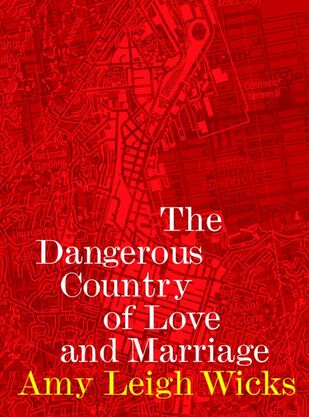
by Amy Leigh Wicks
These poems are a journey from one geographical place to another – New York to New Zealand – and from one spiritual place to another, “home” in both cases. Wicks uses a range of poetic forms that match the scope of her journey: villanelles, sestina, haiku, sonnets, for starters. There are devotional forms – canticles and psalms, and prose poems labelled as ‘log notes’. As befits work by a poet born at St Vincent’s Hospital, there are syllabics lurking in corners, not quite visible.
Of course, at the beginning we don’t know what the story will be:
Who doesn’t hope
for a fishing net
to come heavy
from the water with
an old locked box
caught in the net?
You might ask
how did the box
swim into the net?
And I might say
that is between
the box and me. (‘Loretta’ p 7)
Enter love. Enter changes in landscapes, feelings, and tastes. ‘Paysage moralisé’ is inspired by Auden’s sestina of the same name, a sensual riff on islands, cities, love and food, ending:
The mountains
out west are pink and gold in the morning. No mountains
are here. Manhattan, Staten, my beautiful dirty islands
are not his. He does not know my sorrow
or my happiness but he knows how to hold me. Jersey City
is lit up across the water
almost beautiful. I might be unravelling.
We are floating on the water
when the sun comes up slowly, heavily –
we are drifting further and further from dry land. (p 22)
Enter New Zealand, and enter new strangenesses. A kitchen haiku is called ‘When I halve them’ and says:
the purple veins blooming in yellow flesh
remind me that home is far (p 35)
The devotional poems carry much of the weight of the book, and can’t really be done justice to in one review. I was enchanted by the rendering of ‘Psalm CXXXIX: In translation’.
Where could I go from your spirit?
How can I run from everywhere?
If I build a tower through the clouds into the gold
of heaven you will be there. If I fall asleep in the black
of hell, you will be there, resting cool beside me.
If I lift off from the cliffs with the gulls, and my body
rests at the bottom of the sea, your hand will reach
for mine, your hand will pull me toward yourself. (p 61)
I had a mild pang losing ‘the wings of the morning’ (though gulls do swoop better) but was happy to see Wicks drop the lines on hatred that appear in the kosher versions of the psalm.
And while we’re on tradition, ‘Ritual’ gives us the truly awesome thought of an earthquake (we are in Kaikōura now) during a Passover seder, as the door opens for Elijah:
The house trembles, a few books fall from the shelf
and Vivienne swears before diving under her chair.
Everything is still again. Where is he? (p 72)
I was trying to figure out a description for this collection – travel narrative? poetry of witness? devotions? – and the penny dropped: In The Dangerous Country of Love and Marriage, Amy Leigh Wicks is giving us a contemporary Pilgrim’s Progress – 21st century language, 21st century landscape – and it’s a wonderful job. Don’t bother plotting the two works against each other: the 17th century is too long gone – but both present a narrative of total faith, written by a poet trusting this certainty to get them through life in a world that doesn’t always have enough space for this sort of thing.
Author: Amy Leigh Wicks
Publisher: Auckland University Press
ISBN: 978 1 86940 897
RRP: $24.99
Available: bookshops

 RSS Feed
RSS Feed
